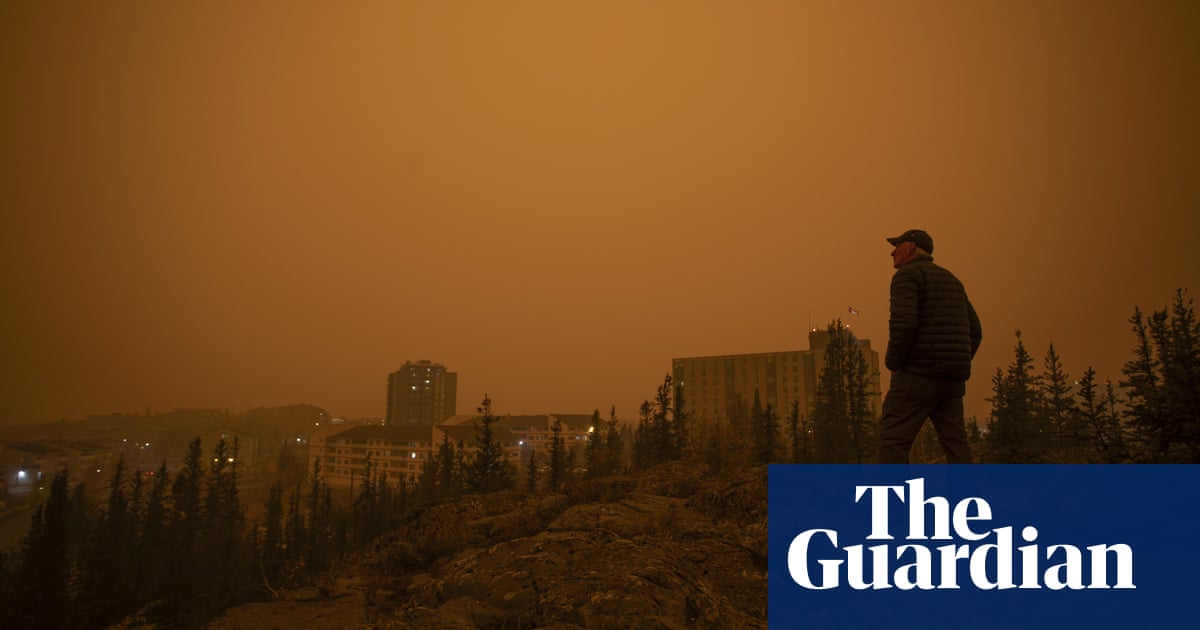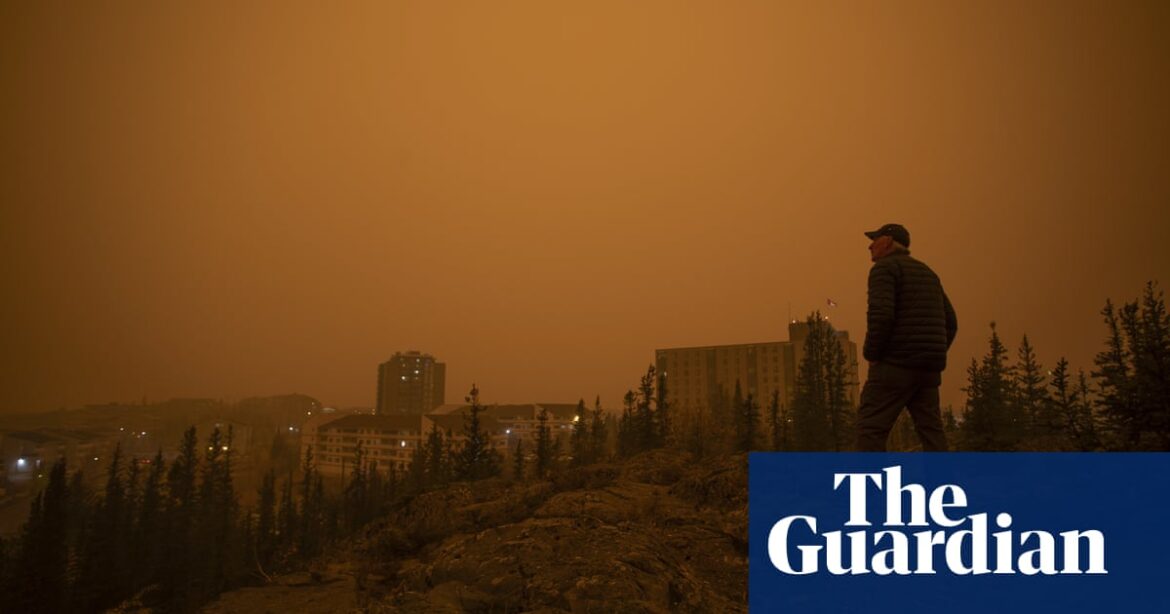
Canada’s pristine air quality has been long praised by its citizens and prized by its government. But the thick plumes of smoke and miles of haze released by a record-breaking season of wildfires deteriorated the country’s air so much that it has fallen behind the United States for the first time on record, highlighting the wide-ranging and damaging effects of the blazes.
The Switzerland-based IQAir recently released its sixth yearly report on global air quality, revealing that Canada’s air quality is lower than that of its southern neighbor. Of the top 15 most polluted cities in both countries, 14 were located in Canada. The overall rankings for air quality in Canada and the United States were 93 and 102 respectively, with Bangladesh topping the list as the most polluted country.
Most of these groups were concentrated in the western provinces of Canada, where large areas of land were consumed by wildfires.
However, the report also identified Yellowknife, the capital of the Northwest Territories, as one of the most polluted communities in the country. This northern city, which is usually not affected by major wildfires, gained attention over the summer when almost 20,000 residents were displaced as multiple fires surrounded the area.
In the Canadian interagency fire center’s most recent 2023 report, it was stated that 6,551 fires engulfed a total of 18,496,057 hectares of land. This is significantly higher than the previous year’s recorded number of 1,467,976 hectares burned.
“We have always perceived fires as a problem exclusive to the western regions. However, in light of the recent season, it is imperative that we recognize it as a national concern that can result in loss, damage, and health complications in any part of our nation,” stated Paul Kovacs, the head of the Institute for Catastrophic Loss Reduction at Western University.
Wildfires spanning from British Columbia to Nova Scotia in Canada caused widespread air quality warnings throughout the country, even affecting major cities in Ontario, which are not typically exposed to the smoky haze and unsettling orange skies caused by wildfires. As a result, millions of residents in the eastern United States also suffered from decreased air quality.
Despite numerous negative news articles for the past few months, any chance of relief during the upcoming seasons of spring and summer seems highly improbable.
According to Canada’s emergency preparedness minister, Harjit Sajjan, the initial reports indicate that this year’s wildfire season may be more severe than the previous one. He made this statement to journalists at the end of February, after receiving a briefing from experts that he described as “worrisome but expected.”
Canada faced significant challenges during the winter season as over 100 wildfires continued to rage in British Columbia. These fires were exacerbated by a drought during the fall and an unusually warm winter with low precipitation.
According to David Eby, the provincial premier, reports have shown that this summer may be challenging as we are witnessing unprecedented levels of drought, snowfall, and heat. Eby made this statement during a press conference on Monday where he also announced that preparations for the upcoming wildfire season are being made earlier than usual.
In the nearby province of Alberta, authorities have also noted an early onset of the fire season due to a particularly dry and mild winter. They are especially worried about the next few months due to one of the lowest snow levels in the past fifty years.
Kovacs stated that determining the appropriate allocation of resources for wildfire preparation is a difficult task for public officials. There is a tendency to increase spending every year, but with numerous competing demands, governments must carefully consider where to direct those funds.
Activist organizations have also highlighted the connections between fossil fuel corporations and the impacts of global warming.
The decline in air quality in Canada serves as a warning to Canadian politicians to quickly put into effect regulations such as an emissions cap on the country’s oil and gas sector, according to Conor Curtis of the Sierra Club Canada Foundation. He emphasizes that the oil and gas industry in Canada bears most of the responsibility for our impact on climate change, and despite their immense profits and the significant risk to the health and homes of Canadians, they have not taken sufficient steps to lower their emissions.
Source: theguardian.com



